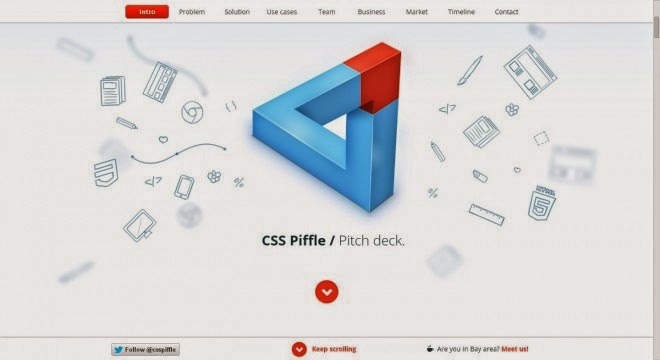Thursday, 24 April 2014
Twitter changes profile design
Monday, 14 April 2014
10 Beatiful HTML5 Websites
HTML5 is still a new technology and many developers have taken it to build some amazing web-based apps and games. HTML5 is a powerful technology which allows amazing integration with multimedia.
In this article is a pick of 10 beautiful that have great design and whose uniqueness might inspire you.
kalixo
zipper galeria
Treme
Cheese Please
Css Pitch Piffle Deck
Monday, 7 April 2014
A bit of code wouldn't hurt
Today, knowing how to code is becoming one of the core skills that most workers should acquire. Whether you’re a doctor, accountant, journalist or have an office job learning a bit of code can prove to be quite helpful. So much of our time is now spent interacting with computers, having some basic knowledge about what goes on in the background can be essential and very beneficial.
Most children in primary schools are not taught computer science, to get a basic understanding of how to program and further learn more about computers. Computers have become a key part in problem solving as well as being an outlet for creative expression. Teaching kids the ins and outs of programming can turn out to be very rewarding for the kids and even for their future employers as well as creating new a generation of Mark Zuckerbergs.
However you do not necessarily have to go school to learn how to code, anyone can learn and teach themselves. There are a lot of online resources that can help you get started. CODE.org is one such example, the organisation aims to encourage people to learn how to code and has even received support from people such as Bill Gates, Mark Zuckerberg and Jack Dorsey.
Learning code is more important now as we now live in societies organized around technologies. It is sort of empowering not to be just passive consumers of the gadgets that surround us but to actually know what is happening and how it happens.
Monday, 31 March 2014
Smartphones as extensions of us.
 |
| Smartphones |













